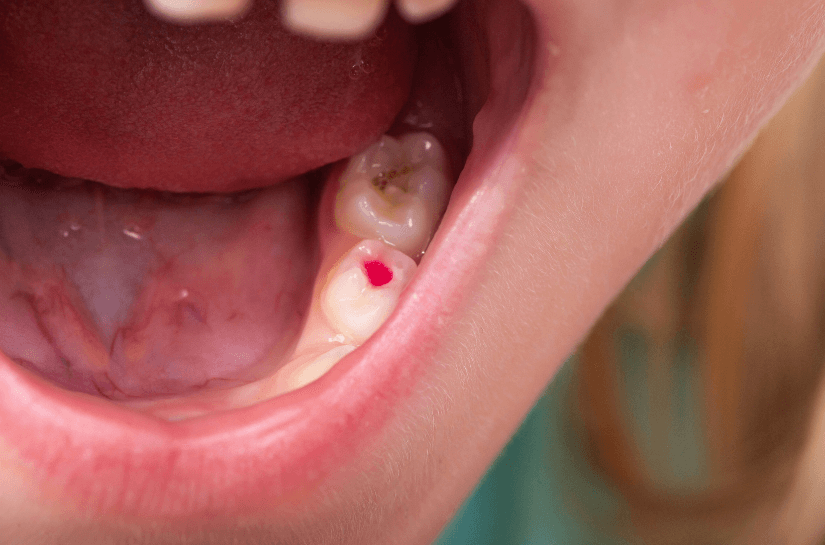1001 W Indiantown Rd, Ste 106, Jupiter, FL 33458
Irreversible Pulpitis: Causes And Treatment

Irreversible pulpitis is a severe dental condition. It involves inflammation of the dental pulp, the innermost part of the tooth. This condition is painful and requires prompt treatment to prevent further complications.
A. What is Irreversible Pulpitis?
Irreversible pulpitis occurs when the pulp inside the tooth becomes inflamed and infected. Unlike reversible pulpitis, where the damage can heal, irreversible pulpitis means the pulp cannot recover. The infection can spread, leading to more severe dental issues.
B. Symptoms of Irreversible Pulpitis
Symptoms include severe tooth pain, especially when eating or drinking hot or cold substances. The pain may be constant or intermittent. Other symptoms are swelling around the affected tooth and sensitivity to touch. In advanced stages, there might be a bad taste in the mouth or pus discharge.
C. Importance of Timely Treatment
Timely treatment is crucial to avoid complications. If left untreated, the infection can spread to surrounding tissues and even cause abscesses. This can lead to more severe health issues, including bone loss and systemic infections. Early treatment can save the tooth and prevent these complications.
Causes of Irreversible Pulpitis
Understanding the causes of irreversible pulpitis can help prevent it. The main causes include extensive tooth decay, trauma to the tooth, and inadequate dental care. Neglecting dental hygiene and delaying treatment of cavities can increase the risk of developing irreversible pulpitis. By addressing these causes promptly, individuals can take proactive steps to maintain their dental health and prevent irreversible pulpitis.
A. Extended Decay or Cavities
One of the primary causes is extensive tooth decay. When cavities are not treated early, they penetrate deeper into the tooth, reaching the pulp and causing inflammation and infection.
B. Trauma to the Tooth
Trauma, such as a blow to the tooth, can damage the pulp. This damage can be immediate or occur over time as the tooth’s structure weakens. Cracks and fractures also expose the pulp to bacteria, leading to infection.
C. Inadequate Dental Care
Poor dental hygiene can lead to plaque buildup and cavities. Neglecting dental care allows decay to progress unchecked. This increases the risk of pulp infection. Regular brushing, flossing, and dental check-ups are essential to prevent this.
Diagnosing Irreversible Pulpitis
Accurate diagnosis is essential for effective treatment. Here are the methods used:
A. Clinical Examination
The dentist will first perform a clinical examination. This includes checking for visible signs of decay, cracks, or swelling. The dentist will also ask about symptoms and their duration.
B. X-rays and Imaging Studies
Dental X-rays help in assessing the extent of the decay and infection. They can show the depth of cavities and any bone loss. Imaging studies are crucial for planning treatment and determining the exact condition of the pulp.
C. Pulp Vitality Test
Pulp vitality tests measure the health of the pulp. The dentist uses thermal or electric stimuli to check the pulp’s response. A lack of response usually indicates irreversible pulpitis, confirming the need for treatment.
Treatment Options for Irreversible Pulpitis
Once diagnosed, several treatment options are available:
A. Root Canal Therapy
Root canal therapy is the most common treatment. It involves removing the infected pulp, cleaning the root canals, and sealing them to prevent further infection. This procedure saves the tooth and restores its function.
B. Pulpotomy
Pulpotomy is often used in children. It involves removing the infected part of the pulp while leaving the healthy part intact. The remaining pulp is then treated with medication to prevent further infection. This method is less invasive but not always suitable for adults.
C. Tooth Extraction
In severe cases where the tooth cannot be saved, extraction is necessary. This procedure involves removing the entire tooth. While it resolves the infection, it also requires follow-up treatment, such as implants or bridges, to replace the missing tooth and restore function.
Preventing Irreversible Pulpitis
Prevention is better than cure. Here’s how you can prevent irreversible pulpitis:
A. Regular Dental Check-ups
Regular dental visits are essential. Dentists can detect early signs of decay or damage during these check-ups. Early intervention can prevent pulpitis from developing.
B. Practicing Good Oral Hygiene
Maintaining good oral hygiene is critical. Brush at least twice a day with fluoride toothpaste and floss daily. This helps remove plaque and prevent cavities. Using mouthwash can also help in reducing bacteria in the mouth.
C. Addressing Tooth Decay Promptly
Don’t ignore tooth decay. Seek dental treatment as soon as you notice a cavity or any tooth damage. Early treatment of decay can prevent it from reaching the pulp and causing irreversible damage.
Summary
Irreversible pulpitis is a serious dental issue that requires prompt attention. It is caused mainly by extensive decay, trauma, and inadequate dental care. Symptoms include severe pain and sensitivity. Diagnosis involves clinical exams, X-rays, and pulp vitality tests. Treatment options include root canal therapy, pulpotomy, and tooth extraction. Preventive measures include regular dental check-ups, good oral hygiene, and prompt treatment of tooth decay. By understanding the causes and symptoms and taking preventive steps, you can protect your teeth from this painful condition.
Finding Quality Dental Care in Jupiter, FL
When dealing with dental issues like irreversible pulpitis, it’s essential to have a trusted dental care provider. If you are in need of professional dental services, consider our Dentists in Jupiter FL. This clinic offers a range of advanced treatments and personalized care to ensure your dental health is in the best hands.





